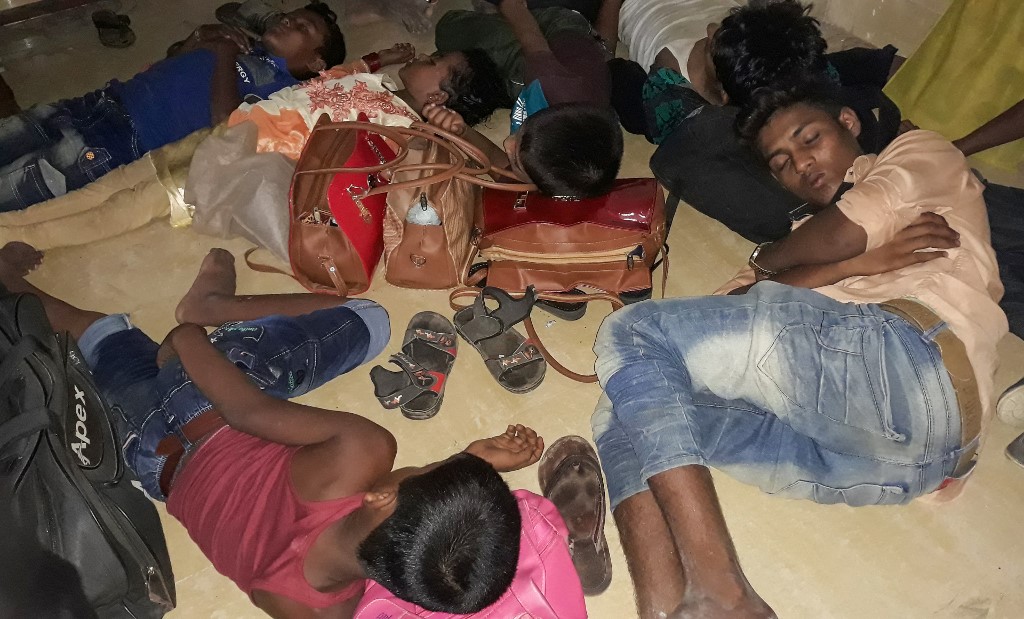
Bangladeshi police shot dead two suspected Rohingya human traffickers, officials said Wednesday, after rescuing 103 refugees in two days about to make the perilous sea voyage to Malaysia.
The two Rohingya men were killed outside a refugee camp in the southeast on Tuesday evening, said Prodip Kumar Das, police chief of Teknaf which borders Myanmar.
"They opened fire at the police. We fired back in retaliation," he told AFP.
This is the first time in four years suspected human traffickers were killed in a gunfight in Bangladesh's southeast. It follows a rise in attempted human smuggling of Rohingya in the last few months.
People-smugglers have in recent years sent tens of thousands of Rohingya from the Bangladesh camps by boat to relatively prosperous Malaysia, usually between November and April when the seas are calmer.
But the route was disrupted in 2015 when a Bangladeshi crackdown killed dozens of top traffickers after Thai authorities discovered mass graves and overcrowded boats drifting at sea.
Now the traffickers are back, officials say, preying on the camps where 740,000 Rohingya took shelter in 2017 after fleeing a brutal military crackdown in their homeland in Myanmar. Masud Hossain, police chief of Cox's Bazar district, told AFP that the police alone have this year rescued over 300 Rohingya, including many young girls, lured by traffickers to go to Malaysia.
On Tuesday evening Cox's Bazar police rescued 34 Rohingya bound for Malaysia, local police chief Fariduddin Khandker said, a day after 69 people were rescued.
Police also intercepted 23 Rohingya teenage girls from the capital Dhaka last week waiting to be trafficked to Malaysia by air. Police suspect the girls were to be sold for forced prostitution.
Rights activists are worried about growing desperation in the camps but said gunfights were not the solution.
"This (killing traffickers in gunfights) will never bring any permanent solution. Instead it will create a horrific environment in the camps," prominent rights worker Nur Khan Liton told AFP.

